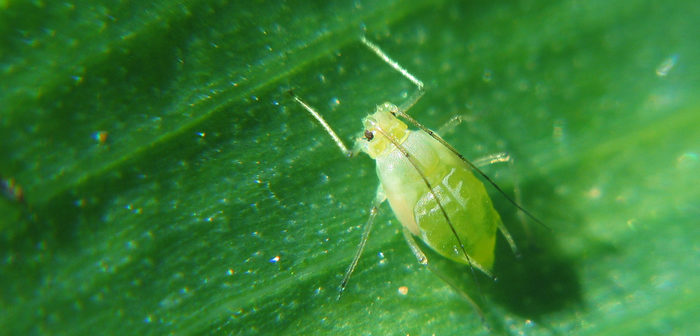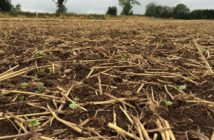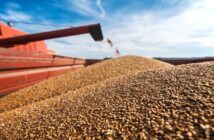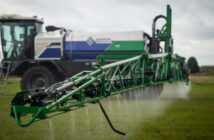The AHDB’s Aphid News’ latest bulletin reports that numbers of peach-potato aphids (Myzus persicae) have risen significantly over the last week, with aphids recorded at new sites in Hereford and Kirton. In both locations the numbers were above the 10-year average – by five times in the case of Kirton.
As a result Neil Thompson, Channel marketing manager at Bayer warns that now is the time to pay careful attention to oilseed rape crops to avoid seeing yields drop through Turnip Yellows Virus, which is carried by the peach-potato aphid.
“Turnip Yellows Virus can affect up to 100% of oilseed rape crops, reducing yield by as much as 30%. And what’s particularly damaging is a small number of infected aphids can have a major impact on vulnerable young oilseed rape plants during establishment.”
Mr Thompson says it is vital to get into the habit of checking the AHDB’s Aphid News service to keep up to date with the prevalence of the peach-potato aphid and other aphids in your area.
“If peach-potato aphids are found in your area, ensure you walk crops to check for infestations,” he says. “The aphids are usually found on the underside of leaves, and in large numbers can also cause damage through feeding on leaves.”
Steve Ellis, entomologist at ADAS, says that predicting levels of peach-potato aphid migration into oilseed rape is very difficult, and that’s why monitoring tools such as the AHDB’s are so important.
“The main problem with Turnip Yellows Virus is we generally do not know the proportion of aphids carrying the virus. The tendency is to treat the crop if peach-potato aphids are identified, which is far from ideal.
“There is much to be learnt about Turnip Yellows Virus, and particularly the impact it has on yield. For example, BYDV in cereals is said to have a limited effect on yield beyond growth stage 31, and it is possible there is a similar growth stage in oilseed rape after which Turnip Yellows Virusis less damaging but we can’t know that until it is researched.”
Unfortunately, the peach-potato aphid is resistant to pyrethroids, which were previously effective in controlling the virus. Mr Thompson recommends that if growers do find an infestation of peach-potato aphids in their oilseed rape crop, they should consider Biscaya (thiacloprid), a fast-acting systemic insecticide.
“There are currently no known peach-potato aphid resistance issues with thiacloprid products, however to safeguard the chemistry and reduce the chance of aphid resistance building up, no more than two foliar applications of any type of neonicotinoid spray should be used in any one year.”




